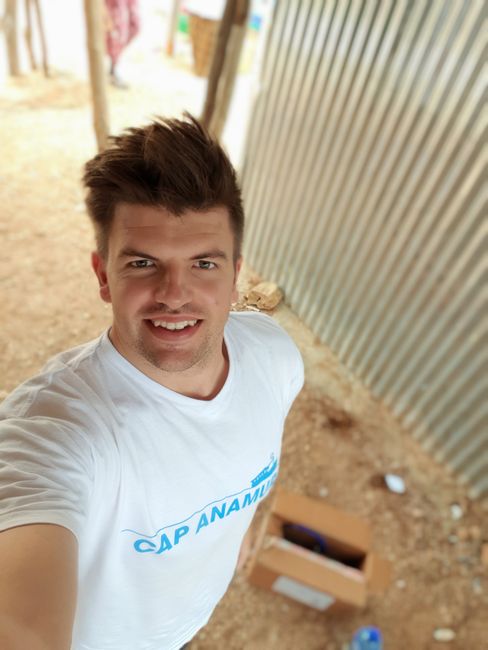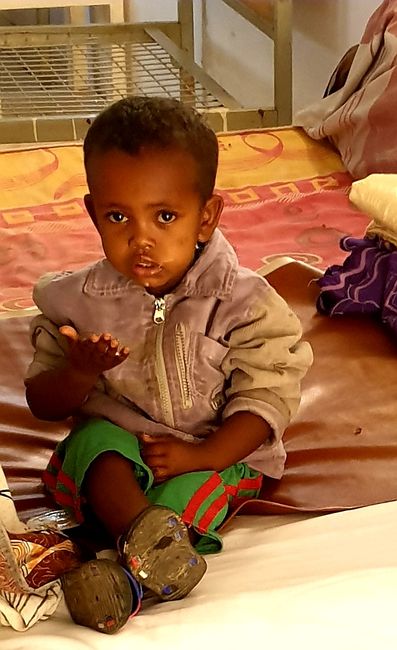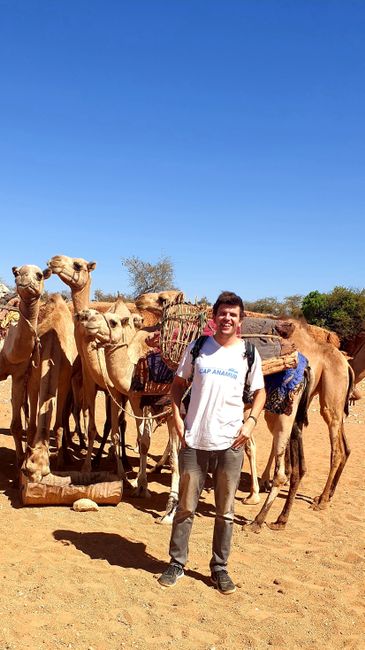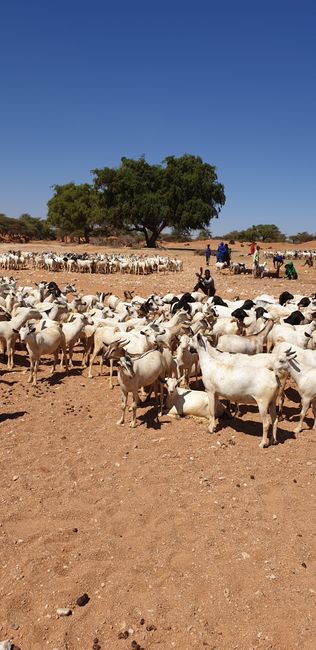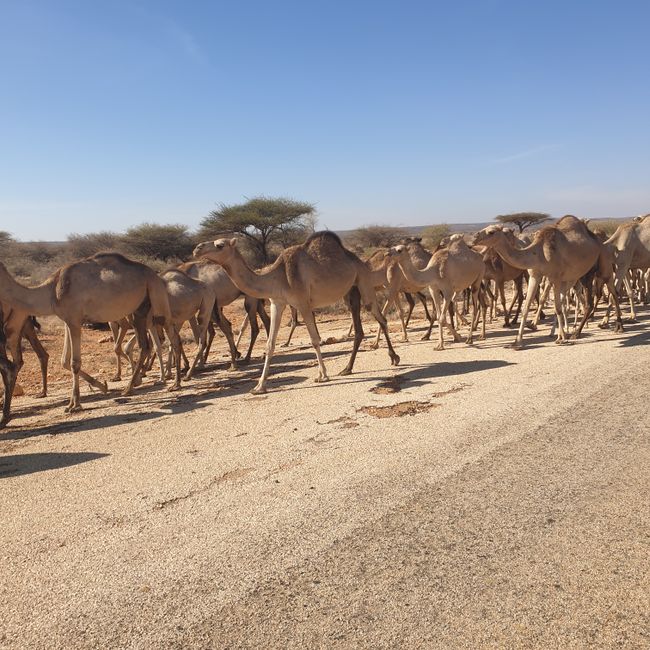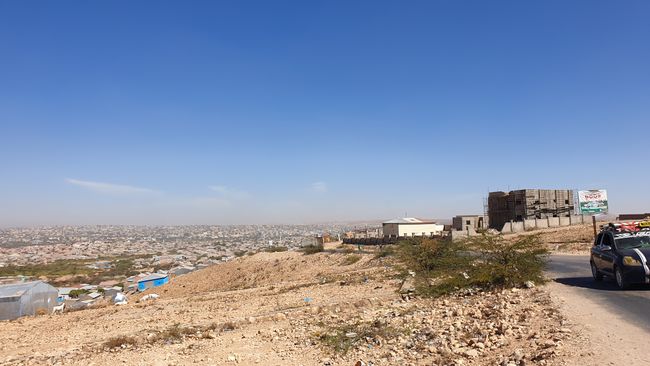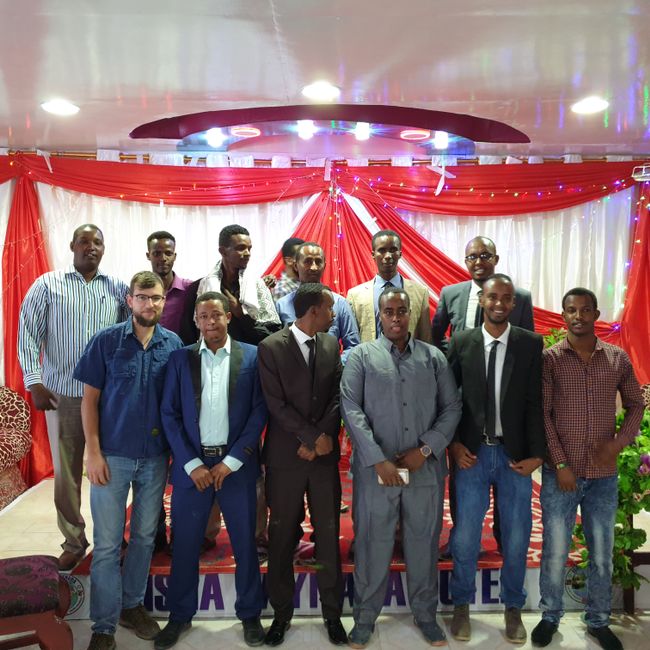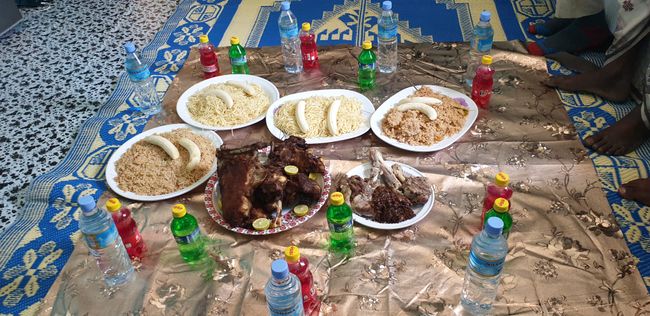Same same but different 2
प्रकाशित: 18.01.2019
समाचार पत्रिका के लिए सदस्यता लें
After a long time, I'm checking in again from beautiful Somaliland. In the past few weeks, I've been busy with analyzing statistics, doing calculations, and reading and writing reports. As a result, my motivation to sit in front of a laptop in my free time and report to you from here has been low. Slowly but surely, I'm entering the final phase of my mission, and especially during Christmas and New Year, I thought about my home in Germany more than once. Although I was asked if I could extend my mission for a few more weeks, I'll probably come home first. We'll see what the future holds.
In addition to all the office work, I've also learned a lot about traditional healing methods in Somaliland in the past few weeks and months. For example, during the cold season, it occasionally happens that patients with throat and neck pain come to the hospital or mobile clinic. If you inspect their oral cavity, you can occasionally see that the patients don't have a uvula or a palate. This is because traditional healers often assume that the uvula is responsible for the discomfort, so they cut it off. A similar situation occurs with patients with fever. Often, their entire hair is shaved off because it is believed to help reduce the fever. Another 'healing method' is traditional burns. For example, if you mention severe abdominal pain, a metal object is heated and then pressed onto the area of the abdomen. This temporarily masks the actual pain but rarely leads to long-term improvement. Therefore, patients with burn marks on their abdomen sometimes come to the hospital.
Furthermore, in the past few weeks, I was invited to an engagement ceremony. Male representatives of the affected clans, as well as the heads of the families to be married, a mullah, and the groom, come together for this meeting. During the meeting, the price is set, which the groom must pay to be able to marry his future wife. Only men are present at this meeting. In addition to a small drink, photos are taken, and congratulations are exchanged once the 'deal' is closed. In the past, a woman was actually 'freed' with camels, but this time the groom had to pay $6000 US, which is almost two years' salary.
We were also invited to one, or even two, wedding meals. All the groom's friends are invited, and the delicious Somali cuisine is served. During the second meal, all the friends also gather, and a small snack, in the form of dried camel meat, is served. Wedding festivities here can last up to a week.
Generally, men here are allowed to marry up to four women at the same time. This means that, for example, our 'caretaker' at the hospital already has more than 20 children and has been married eight times. Unfortunately, some of his wives have passed away, which is why he was able to marry more women.
In about 4 weeks, I'll probably be on the plane to Germany. Until then, we still need to make some economic restructuring in the project. Since economic restructuring rarely brings anything good, it might get turbulent again in Somaliland.
Let's hope it remains calm.
See you soon.
#AlexinSomaliland
समाचार पत्रिका के लिए सदस्यता लें
उत्तर (1)
Margreth
Habe heute erst deinen vielleicht letzten Bericht vor deiner Abreise nach Deutschland gelesen,. Wie alle war auch dieser sehr interesant und aufschlußreich.Aber troz allem ist es schön, wenn du wieder gesund nach hause kommst.Also bis bald Alex.

